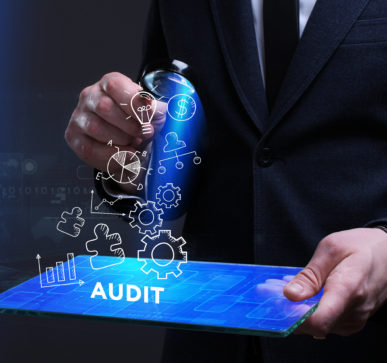The demand for forensic auditing services is soaring during our ongoing Covid-19 pandemic.
In the space of Certified Public Accountants (CPA) service offerings, forensic auditing is a recognized tool for detecting and preventing fraud or financial crimes.
Keep in mind when engaging with a member of the American Institute of Certified Public Accountants (AICPA) for forensic services, that the AICPA issues “Standards for Forensic Services” which virtually every state accounting and licensing regulatory board in the U.S. requires CPAs to follow and which closely track its following professional auditing standards.
- Professional competence. Undertake only those professional services that the member or the member’s firm can reasonably expect to be completed with professional competence.
- Due professional care. Exercise due professional care in the performance of professional services.
- Planning and supervision. Adequately plan and supervise the performance of professional services.
- Sufficient relevant data. Obtain sufficient relevant data to afford a reasonable basis for conclusions or recommendations in relation to any professional services performed.
The AICPA literature further states that an AICPA member:
- Serve his or her client with integrity and objectivity. “Integrity requires a member to be, among other things, honest and candid within the constraints of client confidentiality. Service and the public trust should not be subordinated to personal gain and advantage. Integrity can accommodate the inadvertent error and the honest difference of opinion; it cannot accommodate deceit or subordination of principle.” “Objectivity is a state of mind, a quality that lends value to a member’s services. It is a distinguishing feature of the profession. The principle of objectivity imposes the obligation to be impartial, intellectually honest, and free of conflicts of interest.”
- Not subordinate his or her opinion to that of any other party
- Establish with the client a written or oral understanding about the responsibilities of the parties and the nature, scope, and limitations of services to be performed and modify the understanding if circumstances require a significant change during the engagement.
- Inform the client of (a) conflicts of interest that may occur pursuant to the “Integrity and Objectivity Rule”, (b) significant reservations concerning the scope or benefits of the engagement, and (c) significant engagement findings or events.
- If engaged as an expert witness in a litigation engagement, may not provide opinions pursuant to a contingent fee arrangement, unless explicitly allowed otherwise under the “Contingent Fees”
- If performing forensic services, is prohibited from opining regarding the ultimate conclusion of fraud. This does not apply when the member is the trier of fact. A member may provide expert opinions relating to whether evidence is consistent with certain elements of fraud or other laws based on objective evaluation
AICPA regulated forensic services is a growing and evolving area of professional practice. Another respected organization, the Association of Certified Fraud Examiners (ACFE) is partnering with the AICPA as an organization specifically dedicated to the field of forensic auditing. The organizations work together to ensure their members’ competence and integrity.
Both organizations believe that the appropriate tone for preventing fraud and financial crimes is set at the top with corporate management. Studies demonstrate that an increasing “perception of detection” within a business or governmental organization is widely considered the most effective fraud prevention method. How management disseminates that perception diminishes the probability of fraud occurring.
Directors, officers, and employees in a business or governmental organization should ask themselves if what they are doing is illegal or unethical. Does the behavior of the management of a business or governmental the organization permit encourage it? What are the consequences of the information being uncovered by regulators and law enforcement?
Is your business or governmental organization setting the right fraud prevention tone at the top of the house?
Have you consulted with a CPA, CFE? ©





